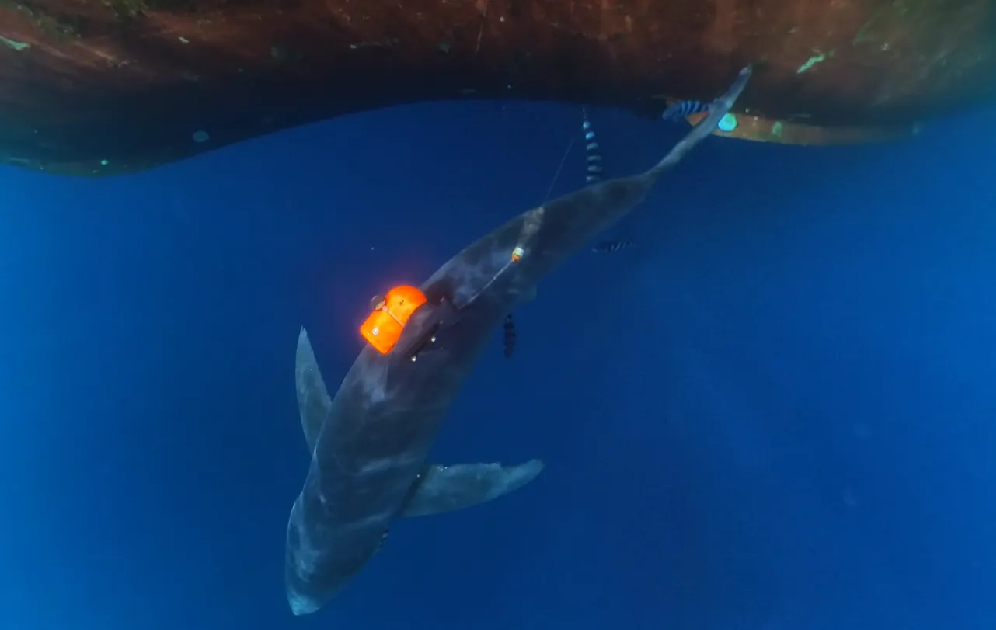
Most living organisms need oxygen to survive, grow and reproduce, and the same is true for ocean predators such as sharks.
Global climate-driven ocean warming has decreased the levels of oxygen in the ocean, leading to expansions of ‘dead’ or hypoxic zones.
These zones can affect the movements, behaviour, and distributions of marine animals, but precise impacts on ocean life are poorly understood.
Researchers from the Sims Group at the Marine Biological Association (MBA) were part of an international study to reveal the effects of ocean deoxygenation using new animal attached tags.
Dissolved oxygen measuring (DOME) archival tags have specialised sensors to record oxygen levels, temperature and depth. They also have the ability to track fine scale movements and activity, and a GPS for tag recovery.
The findings were published in the British Ecological Society. Find out more and read the full, open access paper here.